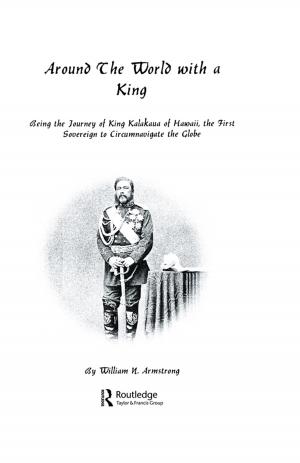Elites and Classes in the Transformation of State Socialism
Nonfiction, Social & Cultural Studies, Political Science, Government, Communism & Socialism| Author: | ISBN: | 9781351297301 | |
| Publisher: | Taylor and Francis | Publication: | September 8, 2017 |
| Imprint: | Routledge | Language: | English |
| Author: | |
| ISBN: | 9781351297301 |
| Publisher: | Taylor and Francis |
| Publication: | September 8, 2017 |
| Imprint: | Routledge |
| Language: | English |
The year 2011 marks the twentieth anniversary of the end of the Soviet Union. This may be an appropriate time to evaluate the adoption by previously state socialist societies of other economic and political models. The transition has sometimes been described in positive terms, as a movement to free societies with open markets and democratic elections. Others have argued that the transition has created weak, poverty-stricken states with undeveloped civil societies ruled by unresponsive political elites. Which is the more accurate assessment?David Lane examines a few of the theoretical approaches that help explain the trajectory of change from socialism to capitalism. He focuses on two main approaches in this volume - elite theories and social class. Theories dwelling on the role of elites regard the transformation from socialism to capitalism as a type of system transfer in which elites craft democratic and market institutions into the space left by state socialism. Lane contrasts this interpretation with class-based theories, which consider transformation in terms of revolution, and explain why such theories have not been considered the best way of framing the transition in the post-socialist states.While recognizing that elites can play important roles and have the capacity to transform societies, Lane contends that elite theories alone are inadequate to explain a system change that brings free markets. In contrast, he proposes a class approach in which two groups characterize state socialism: an administrative class and an acquisition class.
The year 2011 marks the twentieth anniversary of the end of the Soviet Union. This may be an appropriate time to evaluate the adoption by previously state socialist societies of other economic and political models. The transition has sometimes been described in positive terms, as a movement to free societies with open markets and democratic elections. Others have argued that the transition has created weak, poverty-stricken states with undeveloped civil societies ruled by unresponsive political elites. Which is the more accurate assessment?David Lane examines a few of the theoretical approaches that help explain the trajectory of change from socialism to capitalism. He focuses on two main approaches in this volume - elite theories and social class. Theories dwelling on the role of elites regard the transformation from socialism to capitalism as a type of system transfer in which elites craft democratic and market institutions into the space left by state socialism. Lane contrasts this interpretation with class-based theories, which consider transformation in terms of revolution, and explain why such theories have not been considered the best way of framing the transition in the post-socialist states.While recognizing that elites can play important roles and have the capacity to transform societies, Lane contends that elite theories alone are inadequate to explain a system change that brings free markets. In contrast, he proposes a class approach in which two groups characterize state socialism: an administrative class and an acquisition class.















